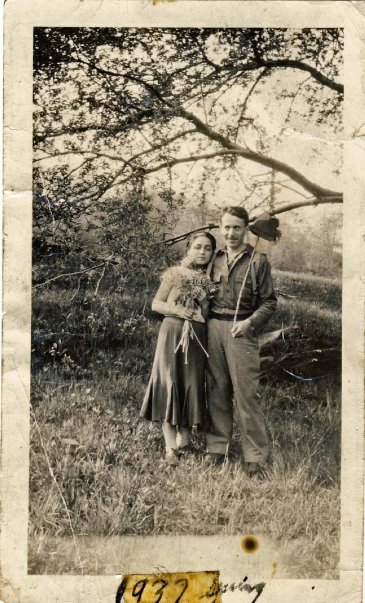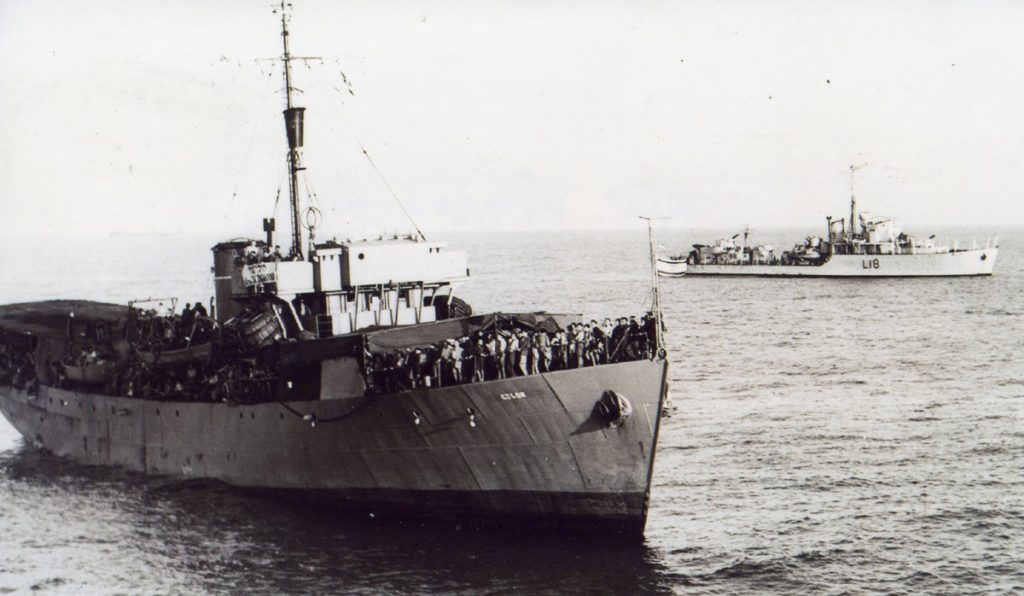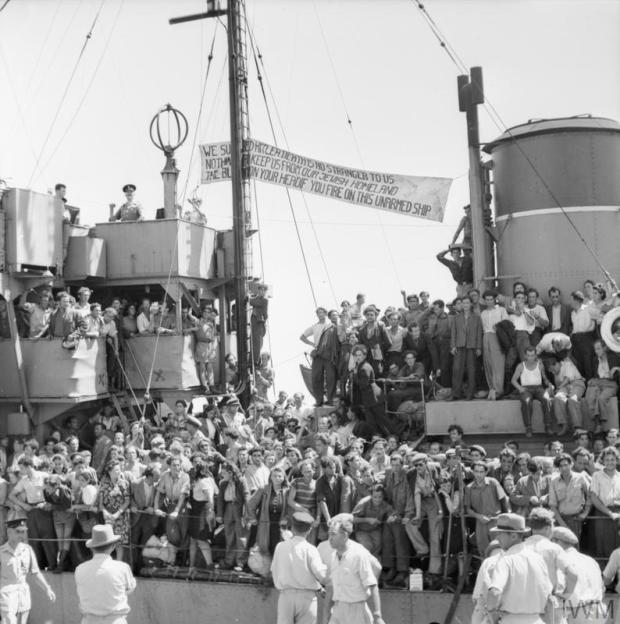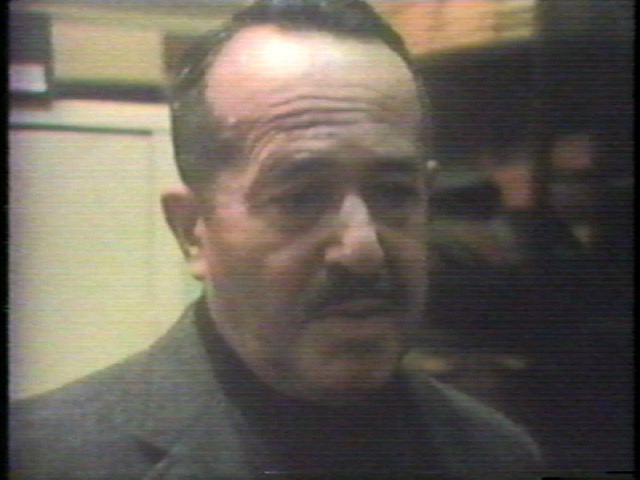The story of Heine Fliegler
By Daniel Fiegler
My father was someone who took risks when he thought the cause was right,
Even as a child singing in a shul choir my father organized a strike of all the other choir boys for higher pay just before Rosh Hashana and won.
Both my parents were anarchists and members of the Industrial Workers of the World (the Wobblies). My father and mother were part of the group that stormed the Nazi ship Bremen in New York in the 1930s and tore down the ship’s nazi flag. My father became a sailor in the merchant marines and would later say Hitler made him an officer. because with World War 2 there was a demand to train sailors to become officers. During the war my Father was part of the convoy that sailed to Murmansk, Russia and because it didn’t have protection after it arrived there, it was nearly decimated by the Luftwaffe. It was nicknamed the Forgotten Convoy because the armed forces ‘forgot’ to protect it all the way. One time in Murmansk the sailors put on a show and my father did comic impressions of Hitler, Mussolini, and Hirohito. A female Soviet political officer asked my Father to drop Hirohito from his act because Russia was not at war with Japan. My father replied that America was at war with Japan so Hirohito stayed in the act. The political officer began to cry causing my Father to relent and drop Hirohito from the act. My mother worked in a shop with a Yette Rohr who with her husband the Israeli painter Yoel Rohr were involved with the Hagana. Yetta convinced my mother to help recruit my father for Aliya Bet. The ship was a surplus Canadian corvette called the Beauharnois. The crew consisted of officers who were mostly experienced sailors like my father and sailors who were inexperienced kids from Habonim and Hashomer Hatzair.. The officers had to train the rest of the crew. The ship was outfitted in New York and sailed out under the Panamanian flag which is common for most ships and a new name the Colon. It stopped in the Azores for repairs and when it reached Italy it picked up the writer I F Stone. When the ship picked up the refugees, the Italian police thinking they were fascists trying to flee stopped them from sailing. The British wanted the Italians to hold the ship till British officers would arrive to take over. In any case the tide was out and the ship couldn’t sail. I F Stone argued with the Italian police to try to get the ship released appealing to the Italian’s dislike of the British as an occupying force. Meanwhile, the tide came in and the ship made a run for it into international waters. However, half the Haganah leadership in Italy was also on board the ship. My father gave them a small boat and instructions on how to sail back to the Italian coast. The British tried to stop the ship now renamed the Josiah Wedgwood from entering Haifa. My Father ordered the ship’s engine to be destroyed so it couldn’t go anyway on its own power. Faced with a helpless ship, the British under international sea law had no choice but to tow the ship to Haifa. Seeing a small boat missing, the British assumed that the ship’s officers were on it and used it to escape. |
In the port there was also an American destroyer. My father used this to his advantage. At the checkpoint to get out of the port, my Father convinced an Arab policeman that he was a drunken American sailor suffering from the DTs and bribed the policeman with a pack of American cigarettes so he could leave the port without papers in order to go get a drink. Since this was the first large ship carrying 1300 people, the British interned them in Atli. It was with subsequent ships that the British started using Cyprus.
My father was hidden in a variety of places and given the name Rudolf Valentino. One place was a bar managed by a cousin of ours that catered mostly to British soldiers. My father realized that by sitting in the bar nursing a drink, it was probably the safest place for him to be. He once went to Jerusalem and was going to visit the Western Wall but the King David Hotel was blown up and even though he had nothing to do with it, he was hustled out of there.
In due time, the Haganah smuggled my father back to Italy. Where he signed onto a ship and sailed back to the United States.
My father felt that what he knew as a sailor especially what he experienced during the war was really a preparation for what he did during Aliya Bet.
For further information on the Wedgewood – click here
I wrote a feature length film script and am currently raising money to have the story produced.







